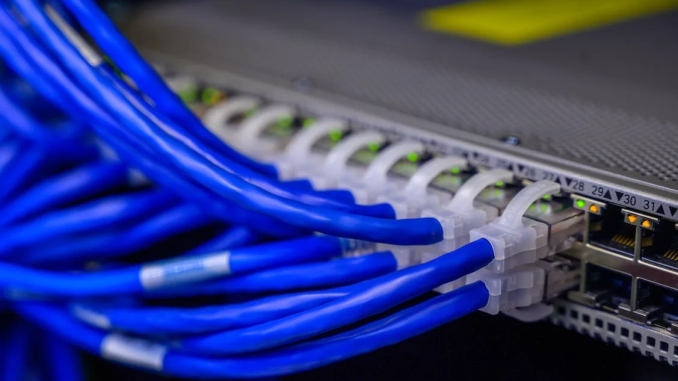You can view your company’s computer network as the backbone of your modern business. Your network constantly carries data, from the most mundane to the most crucial. Understanding the parts of your network and why they’re crucial to the smooth operation of your data will help you decide where to put your money.
Hardware and software together make up the networking infrastructure. Your business network’s connection, security, and dependability are provided by hundreds of separate infrastructure components, from cables to server software.
In this post, we’ll go through everything from switches to routers to hubs and everything in between. We’ll also discuss the importance of network infrastructure in areas such as employee productivity and data protection.

Network Infrastructure Types
Although all network infrastructure works toward the same goal—ensuring the uninterrupted flow of data across your organization’s computers, users, and sub-networks—it is categorized into multiple groups. In general, there are three broad categories into which network infrastructure components can be divided:
Hardware
Network hardware is delivered fully functional and ready for use. However, the specialized hardware is what sells, not the software that comes with it.
Network hardware, in addition to delivering the most fundamental connection, performs specialized tasks efficiently. Hardware routers and firewalls, for instance, contain distinct parts that enable them to handle more traffic per second than software running on typical servers.
Network hardware is the most important component of any network since it serves as the foundation for all other components. Quality hardware is an investment worth making, but the costs may add up fast and have a big impact on a small company’s bottom line. Instead of purchasing brand-new gear, consider buying used devices to lessen their impact.
For example, if you are considering purchasing an Arista network switch, you may save a lot of money by purchasing a used Arista switch rather than the latest up-to-date, most expensive one. When you buy a used and refurbished part instead of a new one, you save a ton of money without sacrificing quality.
However, today, no company can survive on specialized network hardware alone. This infrastructure requires higher-level software as well.
Software
Although network hardware handles the most fundamental and performance-critical functions, network software handles the more intricate and dynamic ones. Network software, for instance, is a common component of network security appliances, such as intrusion detection systems.
Network software also includes crucial tools for managing and controlling your network, such as network configuration management and privileged access control software.
Network Services
On top of the hardware and software that make up a network, services add functionality to endpoint devices and other services that are not part of the infrastructure. Network-wide authentication services, for instance, allow workers to securely access systems and data. DNS, Active Directory, and email are examples of network services.
Why Is Network Infrastructure Essential?
When your company grows and the volume of data passing over your corporate network rises, the core components of your network are placed under strain. It becomes more crucial to keep your network up and running smoothly in order to prevent any downtime or, even worse, data loss.
According to the most recent IBM security report, 83% of organizations have had more than one data breach. Having a stable and well-supported network will make recovery much simpler if a disaster were to hit your business.
Your company’s network is probably under greater stress than ever before as a consequence of the increased use of remote workers brought on by the coronavirus pandemic. Making long-term investments in this vital but frequently neglected infrastructure pays off in the long run since every minute your network is down causes your whole organization to come to a grinding stop.
How Does Network Infrastructure Affect Security?
The security of your company’s network and endpoint devices consumes a disproportionate amount of its network infrastructure. Network hardware, software, and services all play a significant role in the cybersecurity of your business, from the firewall that blocks dangerous traffic at the edge to the network security appliance that detects and stops a malware assault in progress.
Devices in the security-critical network infrastructure are routinely linked together to establish new integrations. Particularly, intrusion detection systems are often hardwired into firewalls so that malicious activity may be stopped the moment it is seen. In a similar way, monitoring and management systems can be integrated with existing infrastructure.

Final Thoughts
A well-oiled corporate network is essential in today’s climate for maintaining productivity across departments. While network infrastructure might appear to be a small implementation item in your overall IT strategy, it has a big influence on how smoothly your business runs.
Network infrastructure includes everything from the simplest cables and routers to the most complex identification and access control systems. Effective network security measures, minimal latency for efficient video conferencing, and improved disaster recovery are all made possible by these software and hardware components.

